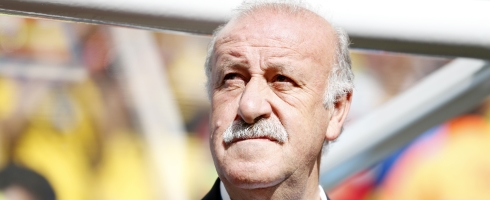Contrary to popular belief 2014 was always destined to be a transformative year for Spain. With most of their golden generation approaching the twilight years of their career and a budding group of highly touted talents ready to stake their claim, the 2014 World Cup was supposed to be a victory lap of sorts, as the torch changed hands.
The last thing the transition was supposed to be was volatile. Coming into the New Year everything seemed rosy. Diego Costa was emerging as a potential panacea to Spain’s striker dilemma and the machine was supposed to keep ticking along.
Then the World Cup happened, and Spain seemingly aged five years in a couple of weeks. The opening game against the Netherlands, a 5-1 drubbing that nailed Iker Casillas and the rest of La Furia Roja to the proverbial cross, still lingers today. In the Brazilian post-mortem excuses flowed, a bad squad selection and demotivation the main culprits. Still, Spain’s embarrassment couldn’t be hidden behind any narratives. It was simply a monumental failure.
Spain didn’t exactly implode, as international sides have in the past [France in 2010] but it was a far cry from the togetherness and solidarity that made them winners of every major international tournament they entered from 2008 to 2012. The transition wasn’t a surprise, but how it happened surely was.
2014 will be a year to forget for Spain. Granted, comparing their results to the past six years is unfair considering the teams that claimed those victories are in contention for the greatest international sides of all time. Yet chinks in Spain’s armour not only appeared but they eventually brought down everything with it.
The air of invincibility which seemed to revolve around Spain, striking fear into their opponents before matches even took place, has vanished. There was a point where a match against Spain meant you weren’t going to touch the ball – you were there merely to be a spectator to the showcase. Now the rebuilding effort, once predicted to be seamless, given the success of the Under-21-sides, will be a rocky road for Vicente del Bosque to navigate.
But unlike most national teams’ transition, Spain’s isn’t predicated by a dearth of talent. Sure, the newcomers would do well to mimic their legendary counterparts, such as David Villa, Xavi Hernandez and Xabi Alonso, but Spain certainly aren’t wanting for talent. The likes of Isco, Koke, Thiago Alcantara, Paco Alcacer, Alvaro Morata and even Jese, assuming he recovers well, should be more than capable of reaching the same heights they did in the Under-21s.
What Spain will struggle with however is their playing style and an adjustment will have to be made going forward. Problems still loom in goal. Casillas has recovered his form but sooner or later it will be time for David De Gea to take over.
The vigils being held internationally for tiki-taka may be premature, but Spain will have to be more decisive moving forward. Costa still can’t seem to hack it for his country despite his brilliant form in the Premier League. This has to be addressed. Frankly, Spain miss Villa and his spontaneity, the perfect foil for tiki-taka, Costa is not yet so effective.
Del Bosque needs to let go of the past and fully embrace all the talent at his disposal. It’s tempting to go with what has worked but it’s clear it doesn’t anymore. He’s been better in his past few squad selections but it’s clear that this Nuevo Spanish Armada is a work in progress.
The countdown is on. Euro 2016 is far more than simply another tournament. It’s a time for redemption.

